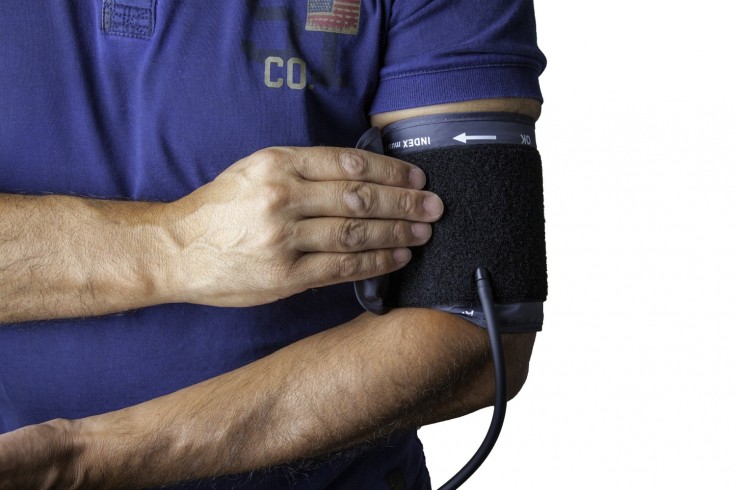
Accelerated nursing degree programs are created to aid students in obtaining a BSN (Bachelor of Science in Nursing) or MSN (Master of Science in Nursing) degree earlier than a traditional or on-campus program. Accelerated programs are suitable for undergraduates that want to enter the field of nursing.
Accelerated BSN or MSN degrees are usually offered by physical institutions but are also now readily available as distance accelerated BSN online or master's programs. What sets an accelerated degree apart from a traditional option is that classes are combined as quarters or sections instead of semesters. This means teaching is continuous as semester breaks extend the degree duration. Students who opt for an online degree are required to complete their clinic practical hours at a medical facility near them.
If you too are interested in opting for an accelerated nursing degree, you are in the right spot. Today, we shall go over the different programs in detail so you can make the right decision.
ABSN (Accelerated Bachelor of Science in Nursing)
An accelerated BSN (Bachelor of Science in Nursing) is an undergraduate program for students that wish to enter the field of nursing as RNs. It is ideal for applicants who have an ADN/RN degree or bachelor's level education. However, students that can meet admission requirements or those that are from a different background are also considered. Nurses with an RN license should opt for an accelerated RN-BSN degree. They can later apply for an MSN for career advancement and better payouts.
Career, Syllabus, and Admission Requirements
An individual with an accelerated BSN degree may be hired as a medical supervisor, case management nurse, ICU nurse, emergency room nurse, registered nurse (RN), medical/surgical nurse, public health nurse, informatics nurse, or school nurse.
Accelerated BSN programs require applicants to have a graduate degree (can be non-nursing), a bachelor's degree, or a master's degree.
Some colleges ask for a minimum GPA, science prerequisites, LPN licensure, CPR certificate, personal interview, resume, recommendations, and even a statement of purpose for admission.
Coursework includes clinical practice, nursing research, health assessments, nursing leadership, nursing systems, clinical expertise, ethics, and evidence-based practice.
ADN (Accelerated Associate Degree in Nursing)
An ADN (Associate Degree in Nursing) is designed to enable students to learn about the clinical practices and skills that are used specifically in the nursing industry. Associate degrees take two years to complete at most institutions, but some others allow students to complete their education in 12 to 16 months.
An accelerated ADN program is a great choice for LPNs, non-nursing students that have a bachelor's degree, or those that want an RN/LPN license in a short time. This degree polishes a student's nursing skills and prepares them for advanced degrees like the RN-BSN program. Graduates can sit for the NCLEX-RN to obtain RN licensure.
Career, Syllabus, and Admission Requirements
ADN graduates can opt to be a physician's assistant, a registered nurse, a nursing/care facility nurse, a delivery nurse, or a rehabilitation nurse.
Students may be required to attend interviews, write essays or prove that they have relevant experience in healthcare to be eligible for admission.
Some other admission requirements include minimum GPA scores, CPR certificate, high school chemistry/biology/algebra/math scores, SAT scores, personal essay, GED transcript, or a high school transcript.
ADN degrees can be completed in two years or less. The syllabus includes foundational nursing courses, nursing practice, clinical experience, human anatomy, and nursing pathophysiology.
MSN (Accelerated Master of Science in Nursing)
An accelerated MSN (Master of Science in Nursing) is an advanced graduate degree for nurses that want to become APRNs (Advanced Practice Registered Nurses). MSN programs include both accelerated courses and direct-entry programs. Accelerated master's degrees can be opted for by students with a master's degree, or non-nursing bachelor's degree. Students can obtain RN licensure after just one year of master's education.
Career, Syllabus, and Admission Requirements
Graduates with an MSN degree can opt for advanced career roles such as an educator, nurse administrator, HPE (Health Policy Expert), CLN (Clinical Nurse Leader), NP (Nurse Practitioner), FNP (Family Nurse Practitioner), CNM (Clinical Nurse Midwife), CNS (Clinical Nurse Specialist) or a WHNP (Women's Health Nurse Practitioner).
Students are required to have a minimum GPA, GRE scores, goal statement, science prerequisites, and a bachelor's/master's nursing/non-nursing degree to be eligible for admission.
Why Opt for an Accelerated Nursing Degree?
Nursing degrees will require you to get clinical experience, understand nursing theory and learn about some important nursing topics like mathematics, statistics, nursing research, nursing ethics, human anatomy, and health assessment pharmacology.
Accelerated programs allow students to switch careers and complete the degree in a shorter period.
Growing demand for nurses means graduates are welcomed into the nursing industry with open arms.
Accelerated programs do not require prior healthcare experience so they are a great option for those that have no medical background.
Online degrees allow students to work alongside and study from the comfort of their homes and at their own pace.
Advanced degree holders land better jobs, can enjoy career advancements and superb payouts.
Endnote
If you are thinking about opting for an accelerated degree, then do not be hesitant. These programs are great even if you have no medical knowledge or prior experience. The best part is that you can opt for an online degree and complete your education right from your home.
© 2026 University Herald, All rights reserved. Do not reproduce without permission.








